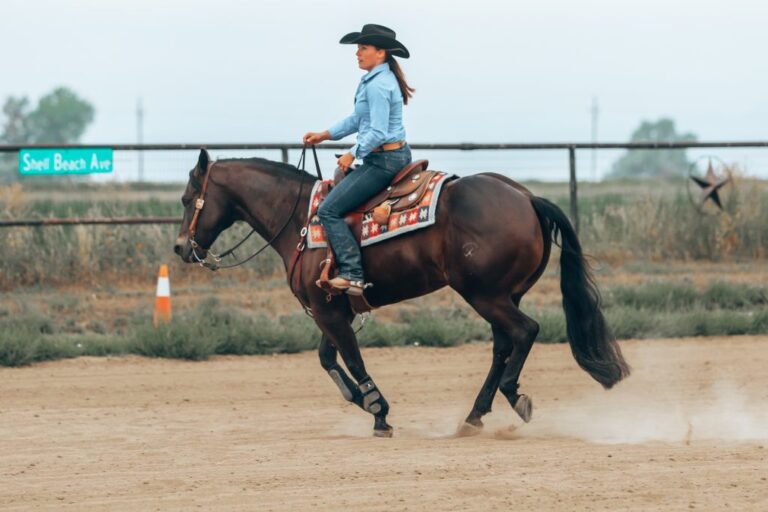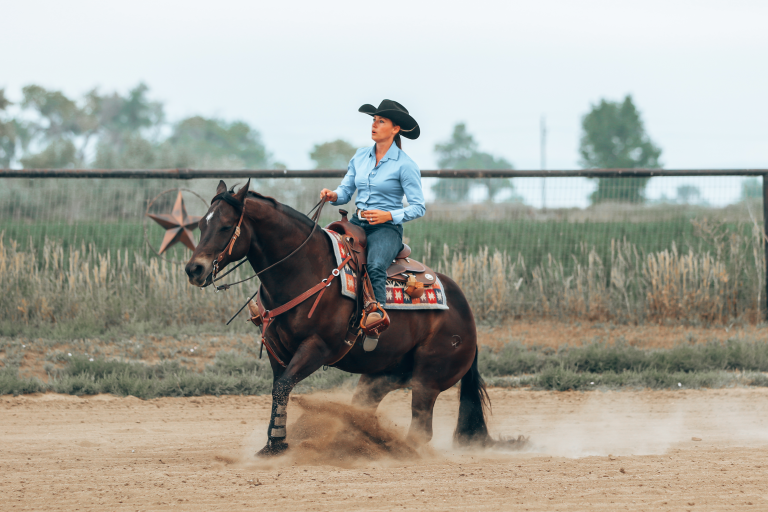As you enter what many call “Championship Season”—fall brings many of the largest Western horse events in the industry—you wouldn’t think about skimping on your horse’s diet, exercise, and well-being routine. But with all the extra work that goes into your own preparation for these major events, you might be tempted to lose track of your own nutrition and health.
Stop right there. Put down the sugary coffee that you grabbed for an afternoon pick-me-up on your way to the barn. And read this advice from AQHA Professional Horseman Brad Jewett. While he prefaces his words with a note that he’s not a nutritionist or a professional in the health and well-being field, he comes by his advice from learning first-hand from his wife, Monica, who’s a lifestyle coach and professional fitness model.

The Mind-Body Connection
It goes without saying that on the days you eat well, sleep, and exercise, you feel better. You’re sharper on your horse. You mind moves quickly from one obstacle to the next, and you’re more able to anticipate problems and head them off at the pass. All of these physical responses enhance your mindset—or crush it if you aren’t taking care of yourself.
If you don’t already practice habits that help your mindset, establishing a pattern now, before you’re facing your year-end goals, can be pivotal in your success or failure.
Getting Started
Jewett, trainer and coach of many major-event champs and professional horseman for 25 years, didn’t always live the disciplined healthy lifestyle he adheres to now.
“This thinking hasn’t always been part of my life or my coaching program,” he said. “I married my wife almost 10 years ago. She’s a fitness icon, and she taught me everything I know.”
Her insight and no-shortcuts approach helped Jewett establish a routine that works for him, even within his super-busy schedule of training horses, coaching riders, traveling to and from shows, and competing with the best in the business. It comes down to three essential pieces: nutrition, exercise, and sleep.
Nutrition
Food is fuel. It powers your body and your brain, which obviously play big roles in your success in the saddle. Jewett’s plan involves the following.
High-quality components. “Everything we eat is organic,” he says. “The beef we eat is grass-fed. We eat as clean as we can.”
Those high-quality components mean every food he eats serves a purpose: to power his body through the rigors of his day at home or at a show.
No deprivation. This might sound unrealistically strict, but Jewett doesn’t deprive himself
“If we want pizza or a margarita, we go get it,” he said with a laugh. “Monica has never told me, ‘Don’t eat that,’ but she’s helped me understand that good eating helps you feel good and bad eating doesn’t. On days I don’t feel like doing anything, she asks what I’ve eaten.”
Exercise
Jewett admits he’s been more likely to hit the gym at a horse show in the past, but now it’s not really possible. He keeps a small staff and limits his barn size, which means he’s doing a lot of the regular work.
“I used to know exactly which hotel I’d stay in at a show, based on its gym facility,” he says. “With Covid, hotel gyms shut down. Horse shows shut down for a time, too. We have a home gym that we use and make the most of our time.”
With his limited time for formal exercise, Jewett attempts to complete 100 push-ups daily. He can do them anywhere, in any attire, and at any time.
“I don’t do them all at once, though if you can do more in a group you’ll get more results,” he shares. “Movement is so important. Riders can be stuck behind a desk all day or on the couch, and they won’t be as effective on their horse. Push-ups are an easy way to incorporate that movement.”
Sleep
“I don’t like to sleep,” Jewett admits. “I hate wasting time. Of course, I know the value of sleep and that it’s not time-wasting in the grand scheme.”
Pair that with the endless hours put in at horse shows, and you could have a recipe for disaster. But Jewett has learned to prioritize sleep and tries to help his riders do the same.
“Sleep is so important physically, but also mentally,” he says. “It allows our bodies to recover and rejuvenate, and your mindset is a big part of that. When I’m at home, I try to get seven or eight hours of sleep. At horse shows, that’s just not possible. We do the best we can to get rest. We have chairs at the stalls for naps, and we encourage our riders to get good sleep away from their phones.”






